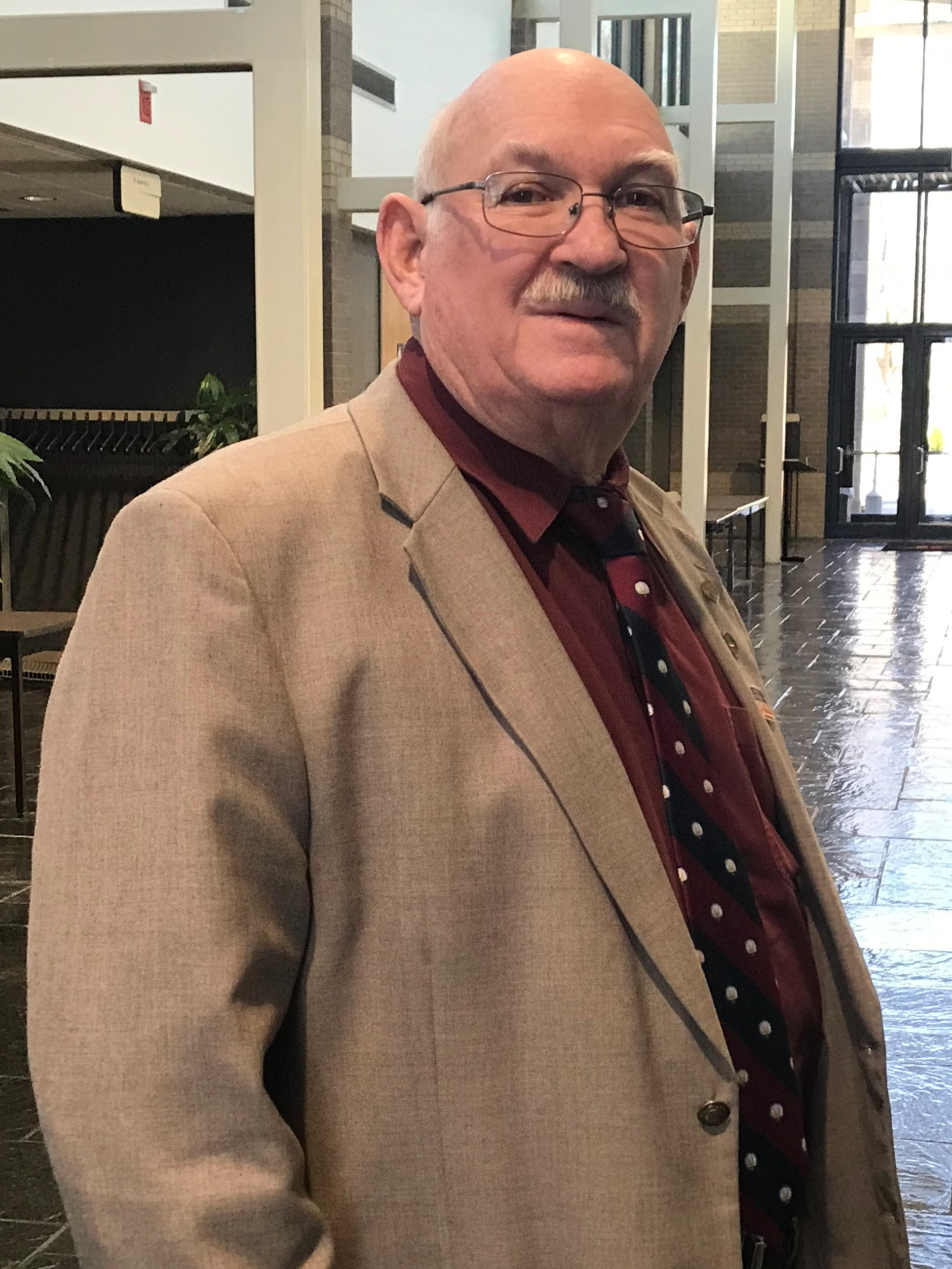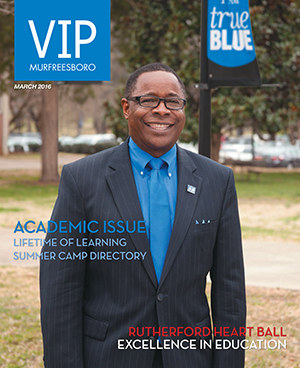VIProfile: Bob Hayes
/Professor and Director of the West Tennessee AgResearch Education Center
Story by Lyda Kay Ferree, The Southern Lifestyles Lady. Photography by Woody Woodard.
Bob Hayes hails from Parsons, Tennessee. He grew up on a farm where his family raised cattle, hogs, corn, cotton and peanuts. He developed an interest in agriculture and science early thanks to involvement with 4H and FFA.
He attended the University of Tennessee and graduated with a degree in agriculture in 1968. Following graduation, he served in the U.S. Army in Germany. After completing military service, Hayes moved to Champaign, Illinois to complete his Ph.D. in Agronomy from the University of Illinois.
He began his career in higher education as an assistant professor of agronomy at the University of Kentucky. In 1978, he returned to his home state to take charge of UT’s Weed Control Research program in the western part of the state.
During his tenure at UT, Hayes has become a prominent and highly esteemed expert in the weed science field. His research led to the sweeping adaptation of conservation tillage. He has been published in numerous books and scientific journals, and his work has garnered many national awards and recognition.
Hayes has traveled the world sharing his research findings with the agricultural and scientific communities.
In 2002, Hayes was named Director of the West Tennessee AgResearch and Education Center. In this role, he oversees the 650-acre complex that facilitates more than 100 research projects each year. These projects focus on row crops, ornamental plants and turf grasses. The center also hosts numerous public events and garden tours as well as meetings for commodity groups and county government. Hayes manages a staff of 40+ and serves as a mentor to junior faculty.
Hayes is a member and former President of the South Jackson Civitan Club, and he gladly volunteers in community projects that serve the underprivileged. His faith is an important part of his life as he is active in both his church and the Gideons International. Hayes and his wife, Kathy, have been married for 44 years. They have three children and five grandchildren.
“I hope that the legacy that this Center has had for many, many years will continue in the future.”
VIP: You grew up on a farm in Parsons. Since your interest was in agriculture, was your goal to be a farmer and/or researcher? Your job seems like a perfect fit for you!
Bob Hayes: My aspiration at that time was to be a vocational agriculture teacher because I admired Mr. McIllwain, my high school vocational agriculture teacher at Parsons, a great deal.
VIP: You were named Director of the West Tennessee AgResearch and Education Center in 2002. What are some of the major changes you have seen since 2002 at the Center?
BH: I think one of the major changes since I came on board at the Center was the reforestation of the bottom fields along the Forked Deer River. They were cleared back in the late fifties/early sixties and made into farm land. It wasn’t suitable for farm land and should not have been cleared. It was more suitable for wetland, and we reforested it.
We had an economic downturn in 2008. At the same time several long-term employees took early retirement, and we did considerable downsizing. Ten people retired in 2008-2009, and they were replaced with three people. Dr. Jim Brown, a former director of the Center, lived here and he raised his family here. At one time it was required for the director to live on the property. Now we use his former house for graduate students and intern housing.
VIP: Do you typically have interns at the Center?
BH: Yes, especially during the summer. We have graduate students almost year round and visiting scientists. We even have some undergraduates who come here for their hands-on learning.
VIP: What projects are you and your staff working on at present?
BH: One of the newest things we are just getting started on is working with industrial hemp for fiber. This is our first year to work with this.
We are evaluating a lot of the new technology that is coming out in terms of crop protection. Another project is trying to identify drought-tolerant genes in our crops. So much of our agriculture in Tennessee is not even suitable for irrigation. We know plants such as cactus can tolerate a lot of drought. We’re trying to produce cotton and soybeans that can also tolerate a lot of drought.
VIP: What are the chief goals of the Ag Center?
BH: Our mission is to provide information to the agricultural entities in Tennessee, whether that it is the producers, industry regulators or the media. We provide them factual information on the research projects that we do. We try to be on the leading edge of technology or problems and issues that are going on in agriculture. One example is using drones in agriculture. We look at how to use them to do some of the things that we do in agriculture like checking irrigation systems in the field. We provide the programming and technology and information that producers need to make the best decisions to keep them profitable from an economic and sustainable point of view.
VIP: What developments at the Ag Center might our VIP Jackson Magazine readers not know about?
BH: Several years ago the UT Gardens, Jackson (along with our sister locations in Knoxville and Crossville) became the official botanical garden of the State of Tennessee. I think our city is very fortunate to have this garden oasis so close to downtown, which provides education, enjoyment, and a welcome respite from busy schedules. Visitors are welcome to walk the gardens area of our facility any day of the week from dawn to dusk.
VIP: Talk about the popular Summer Celebration.
BH: Our theme this year is A Kaleidoscope of Color. About 2500 people typically attend this event, rain or shine. The date is July 11 from 8am-4pm. We still feature the Kitchen Divas. Tickets will be available for this event because seating is limited. Call 424-1643 from 7am-4 pm for more information.
VIP: Describe a typical day for you if there is such a day.
BH: I am an early morning person. I get here about 6:30 am to check the building and make sure meeting rooms are ready. I check messages to see who has a need—perhaps a grower or producer. Then I’ll work on projects. For example, we may need to order seed for the research program here. And there are maintenance issues plus we take care of emergencies that come up (broken equipment etc.). I might be involved with meetings with some of the faculty. We plan programs, field days and tours (We have groups who want to tour the station). I usually do an overview tour. Lately I have been involved a lot in the construction business renovating greenhouses and renovating the building itself. We consistently have preventative maintenance projects going.
VIP: Are you seeing more students entering the agricultural field?
BH: We have seen enrollment numbers increase at UT’s Herbert College of Agriculture, but many of those students are majoring in Animal Sciences with a plan to go into Vet Med. Fewer students are choosing to major in Plant Sciences.
VIP: Look down the road in the next 5-10 years. What changes do you envision or would you like to see at the Ag Center?
BH: I’d like to see us have more young people interested in the things that we do. Considering the projected world population growth, it will be even more important to produce enough food and fiber to meet those growing needs.
I would hope that the legacy that this Center has had for many, many years would continue in the future. I think we have outstanding faculty here, but many have been here a while. I’d like to see new hires be of the caliber of the ones who are here at the present time because we have some of the best throughout the South. Hopefully we can find the next generation of those who are of that caliber.
What to Know
West Tennessee AgResearch and Education Center
605 Airways Blvd., Jackson, TN 38301
(731) 424-1643
Hours: 7 am - 4 pm Monday through Friday
www.west.tennessee.edu
30th Annual Summer Celebration Lawn And Garden Show
Theme: A Kaleidoscope of Color
Thursday, July 11, 2019 • 8 am-4 pm
















































